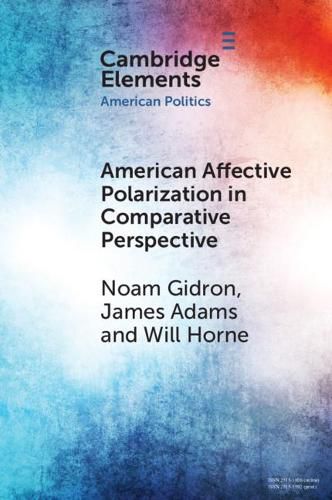Readings Newsletter
Become a Readings Member to make your shopping experience even easier.
Sign in or sign up for free!
You’re not far away from qualifying for FREE standard shipping within Australia
You’ve qualified for FREE standard shipping within Australia
The cart is loading…






American political observers express increasing concern about affective polarization, i.e., partisans’ resentment toward political opponents. We advance debates about America’s partisan divisions by comparing affective polarization in the US over the past 25 years with affective polarization in 19 other western publics. We conclude that American affective polarization is not extreme in comparative perspective, although Americans’ dislike of partisan opponents has increased more rapidly since the mid-1990s than in most other Western publics. We then show that affective polarization is more intense when unemployment and inequality are high; when political elites clash over cultural issues such as immigration and national identity; and in countries with majoritarian electoral institutions. Our findings situate American partisan resentment and hostility in comparative perspective, and illuminate correlates of affective polarization that are difficult to detect when examining the American case in isolation.
$9.00 standard shipping within Australia
FREE standard shipping within Australia for orders over $100.00
Express & International shipping calculated at checkout
American political observers express increasing concern about affective polarization, i.e., partisans’ resentment toward political opponents. We advance debates about America’s partisan divisions by comparing affective polarization in the US over the past 25 years with affective polarization in 19 other western publics. We conclude that American affective polarization is not extreme in comparative perspective, although Americans’ dislike of partisan opponents has increased more rapidly since the mid-1990s than in most other Western publics. We then show that affective polarization is more intense when unemployment and inequality are high; when political elites clash over cultural issues such as immigration and national identity; and in countries with majoritarian electoral institutions. Our findings situate American partisan resentment and hostility in comparative perspective, and illuminate correlates of affective polarization that are difficult to detect when examining the American case in isolation.